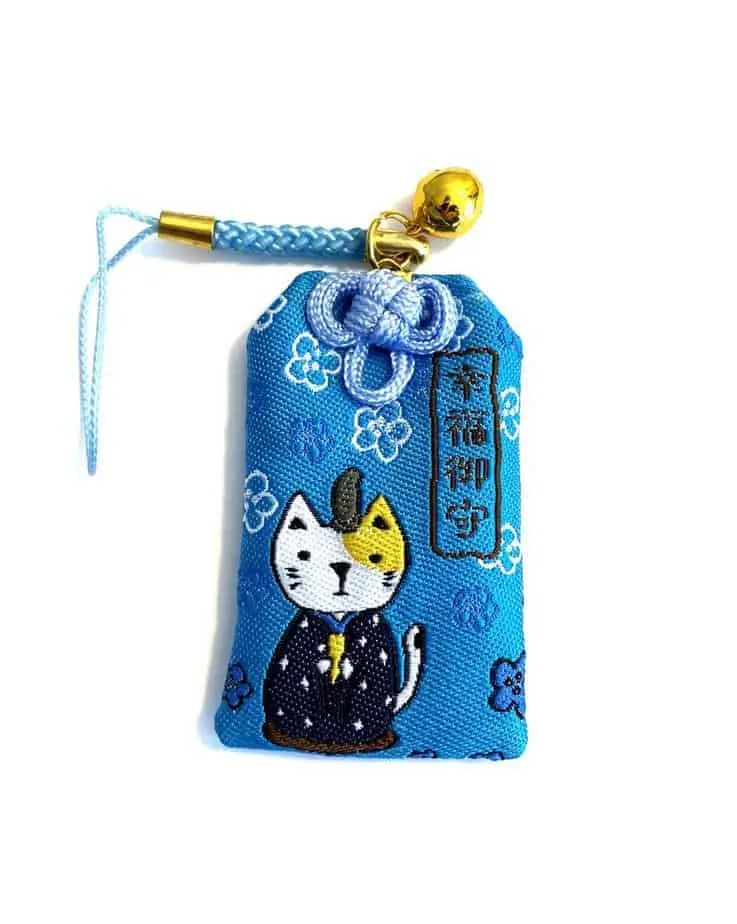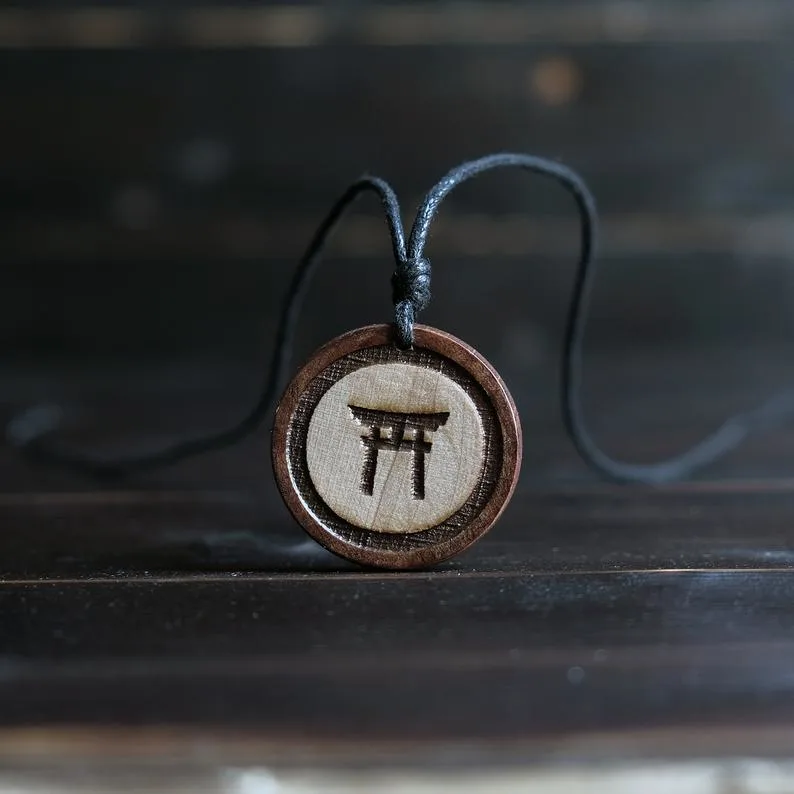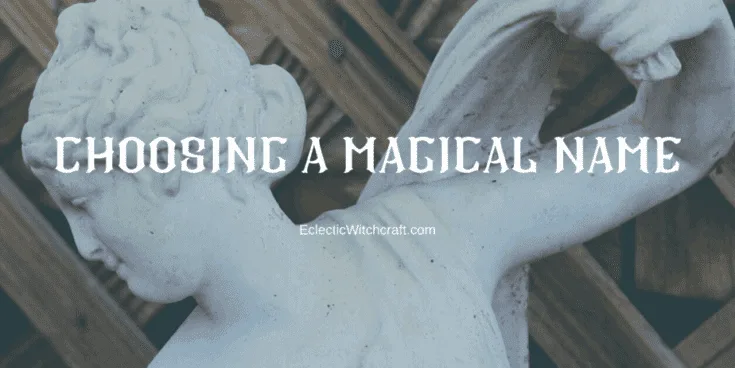Please note that posts on this site may contain affiliate links
Whether you’re looking for Japanese witch names to honor your own ancestry, or to name a character in a novel you’re writing for NaNoWriMo, this list is for you! These magical Japanese witch names come from traditional Japanese folklore.
Names like Himiko and Momiji Densetsu hold power thanks to their history and associations with witches and magical creatures from mythology.
Don’t forget to check out my list of Irish witch names, too!

Japanese Witch Names
It was extremely hard for me to find any names associated with witches in Japan. Most of these names are actually the names of monsters in Japanese folklore.
While there are some stories of witchcraft in Japan, I couldn’t find any that named specific Japanese witches.
So, instead, we rely on the myths of monsters to choose our magical Japanese witch names.
We also look to the names of miko, or shrine maidens, many of whom became famous through their actions.
Himiko
Himiko is an interesting figure. She was suppposedly the first ruler of Japan and the originator of the Grand Shrine of Ise.
In spite of that, she is missing from Japanese historical records but is present in Chinese stories.
She was a shamaness and peaceful ruler of the proto-Japanese federation of Yamatai.
She was young when she became a ruler, and was very interested in magic:
The country formerly had a man as ruler. For some seventy or eighty years after that there were disturbances and warfare. Thereupon the people agreed upon a woman for their ruler. Her name was Himiko [卑彌呼], her age at the time was only fourteen. She occupied herself with magic and sorcery, bewitching the people. Though mature in age, she remained unmarried. She had a younger brother who assisted her in ruling the country. After she became the ruler, there were few who saw her. She had one thousand women as attendants, but only one man. He served her food and drink and acted as a medium of communication. She resided in a palace surrounded by towers and stockades, with armed guards in a state of constant vigilance. (tr. Tsunoda 1951:13)
People Pill
If you were trying to name a Japanese witch in a novel, you couldn’t do much better than choosing Himiko as a name.

Momiji Densetsu
Her name translates to “maple leaves”. Princess Sarashina or Momiji is a story from the Muromachi period.
Momiji was a powerful witch that lived in the mountains of Nagano prefecture. She disguised herself as the Princess Sarashina to avoid being killed by a great samurai, Koremochi.
In a dream, Hachiman warned Koremochi that Princess Sarashina was the witch Momiji, and that he must kill her with a holy katana.
Koremochi was eventually successful, but the witch was a fierce opponent.
Suzuka Gozen
Sometimes a thief, sometimes a divine celestial maiden similar to angels or fairies, and still other times an oni or monster.
Suzuka Gozen is often seen as a kijo or a monstrous woman ruined by her karma or resentment of others.
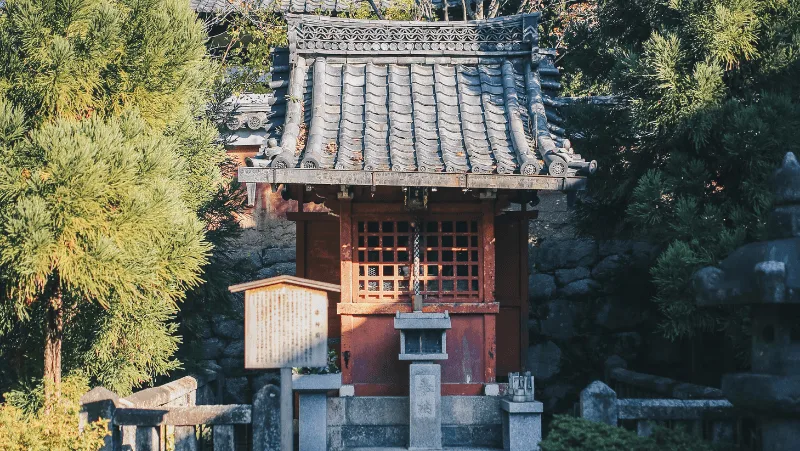
Yamauba
In Japanese tales, travelers and merchants were attacked by Yamauba.
Yamauba appears as a terrible crone, with unkempt golden white, long hair. Her clothes were filthy and torn, and she did not shy away from cannibalism.
One tale had a woman assisted in giving birth by an old woman that seemed kind… until it was revealed that the Yamauba had plans to eat the child once born.
A Torii is a traditional Japanese gate most commonly found at the entrance of or within a Shinto shrine, where it symbolically marks the transition from the mundane to the sacred.
Amaterasu
The Japanese sun goddess Amaterasu is an incredibly popular Japanese deity.
She is the embodiment of the sun, as well as the embodiment of Japan. The imperial family claims their right to rule by claiming to be descended from her.
She is a goddess of creation and of the rising sun. In Shinto, the sun represents order and purity, two very important concepts in the religion.
The Ise Grand Shrine (built by Queen Himiko) is dedicated to Amaterasu.
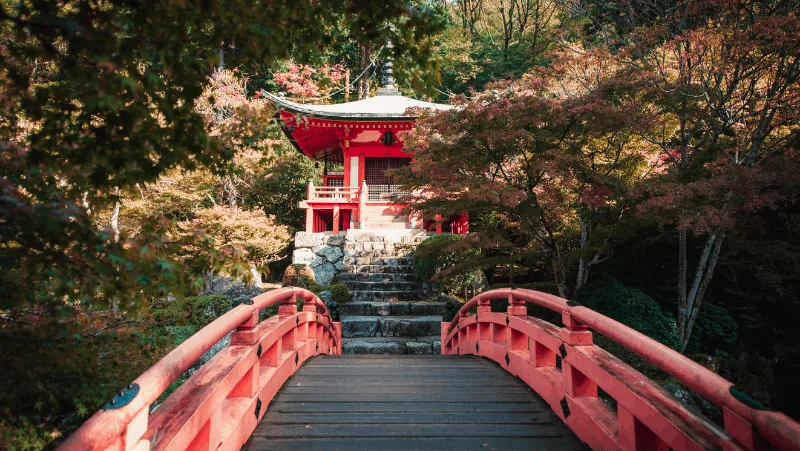
Kishimojin
In Buddhist traditions, Kishimojin is either a revered goddess of a demon.
Her positive aspects include protecting children, childbirth, and easy parenting.
As a demon, she terrorizes irresponsible parents and bad children.
She is similar in some ways to the Greek goddess Tyche. In Japanese tradition, she is an aspect of the goddess of mercy, Kannon.
Nakayama Miki
Nakayama Miki was a 19th century Japanese religious leader whose followers suspected she was a living goddess.
She was thought to have healing powers, though her last years were spent being persecuted by the government.
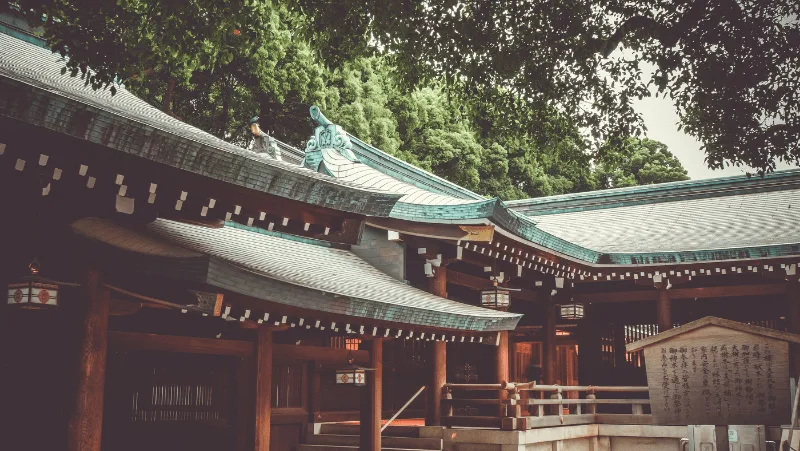
Empress Jingu
A controversial and legendary leader, Empress Jingu has many myths about her.
Though many consider her to be a mythical empress, she was also seen as a shamaness and a military ruler.
Iitoyoao-No-Mimemiko
Another famous miko, Princess Iitoyoao was a member of the Imperial family. She briefly acted as an administrator and addressed state affairs.
She may have given a prophecy of who should be on the throne after Emperor Seinei died.
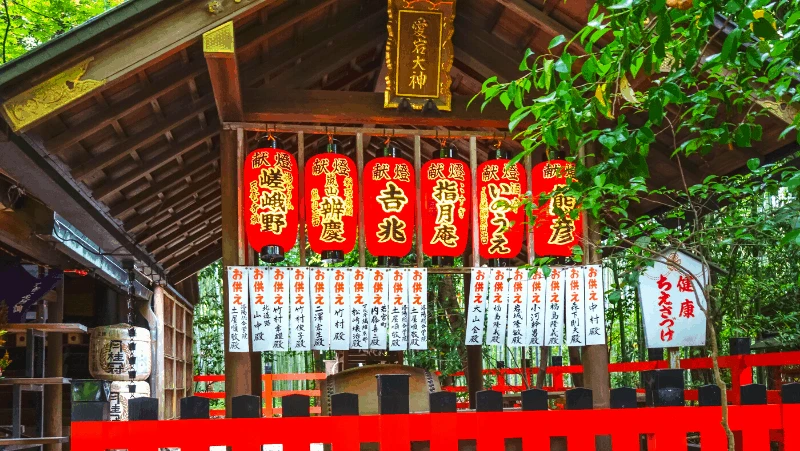
Izumo-No-Okuni
This shrine maiden is believed to have invented kabuki. She was a shrine maiden until her dancing became more popular.
As a miko, she performed sacred dances and songs.
Other Japanese Witch Names And Words
In Japan, a Miko is a shrine maiden or shaman. While modern shrine maidens are seen in a more secular light, they once performed spirit possession and communicated with the divine.
There are many words associated with shrine maidens, and many of them would be suitable for Japanese witch names.
- Ichiko (translated: female medium or fortuneteller)
- Reibai (translated: spirit go-between, medium)
- Itako (blind spiritual mediums that communicate with Shinto spirits)
- Okamin (possible translation: wife or mistress of God)
- Moriko (possible translation: protector)
- Nono (Shinshu Kuni mikos that shook bells, chanted invocations, and spoke with the voices of spirits)
- Zatokata (translated: Zato = priest, Kata = wife, they were formerly wives of priests. Zatokata performed after funerals and communicated with the dead)
Magick Names For Witches
Explore magical names from every culture and tradition with these blog posts. Whether you want to use witch names in your novels, or want to choose a magical name for yourself, these blog posts will help you choose the right one.
- Working With Hekate During The Full Moon
- 20 Love Spells: From Love At First Sight To Break Up
- A Witch's Guide to Setting Goals and Achieving Them in the New Year
- Goal setting tips
- How to use the lunar phases for goal setting (new moon, waxing moon, full moon, waning moon)
- How to use planetary days and hours for goal setting ( Sun, Moon, Mars, Mercury, Jupiter, Venus, Saturn)
- How to use monthly correspondences for goal setting
- How to mix all of these for explosively powerful magic
- Easy Simmer Pot Recipes for Financial Abundance Using Herbal Witchcraft
- Business Abundance Simmer Pot
- Good Luck Simmer Pot
- Life Of Luxury Simmer Pot
- Money Drawing Simmer Pot
- First Of The Month Prosperity Simmer Pot
- Unemployment Protection Simmer Pot
- Manifest Gifts Simmer Pot
- Full Moon Witchcraft: Traditions, Correspondences And Rituals For Beginners
- Moon Sign Astrology: Your Emotions & Inner Self Revealed
- The Magic of Full Moon Tea: Recipes And Rituals
- Beginner Witchcraft: 15 Candle Spells for Beginners
- Lilith Spells: Tapping Into The Dark Divine Feminine And Feminist Activism
- Aphrodite Of Love And War: A Spell Book For Romantic Warfare
- Pagan Prosperity: Aligning with Abundance through Earth-Based Practices
- Creating Moon Water During the Waning Moon
- Ascending Into Greatness: Unleashing Your Rising Sign's Potential
- Sea Witchcraft: A Guide to the Magical Wisdom of Water
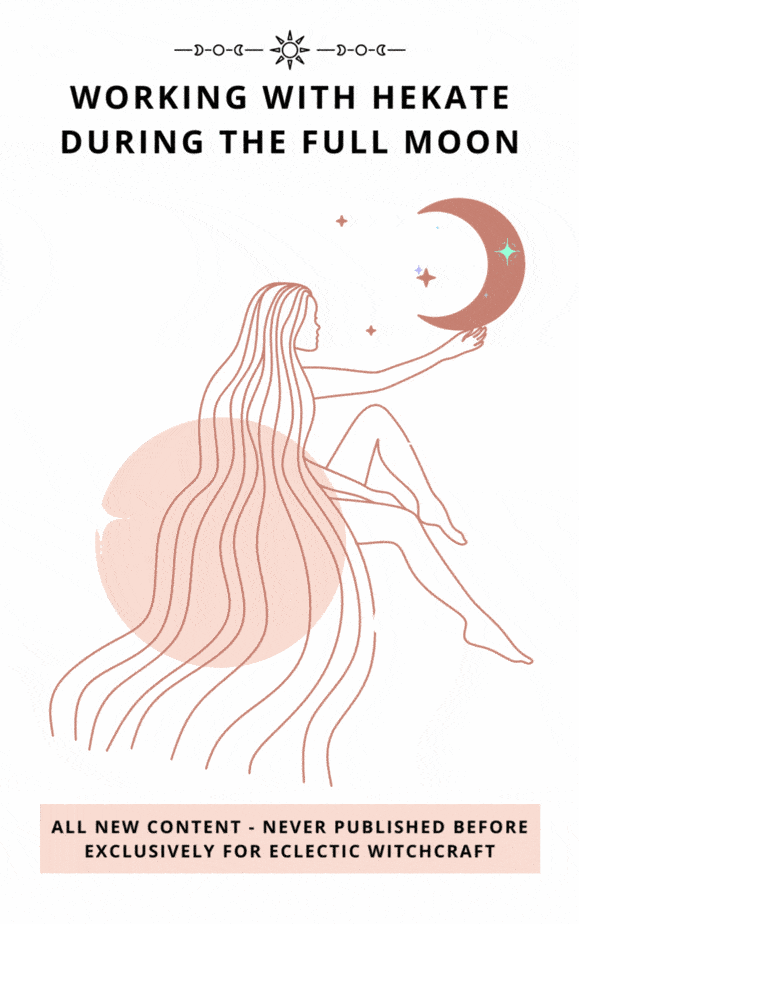
During the full moon, we call upon Hekate to assist us in clearing our past, releasing our fears, and opening ourselves to new possibilities. We ask her to help us gain clarity in our lives, to help us transform our inner worlds, and to allow us to move forward with courage and confidence.
It is said that Hekate helps us to overcome obstacles and challenges that stand in our way, and to achieve our goals. In addition to being a benevolent Goddess, she is also a fierce warrior. When we summon her, we invite her to help us take charge of our lives, to lead us into battle, and to fight for justice.
I am an eclectic witch - I've been practicing since 1974. As a student of the occult, working with astrology, tarot cards, runes, and numerology, I found that this was a very comprehensive and well written text on working with Hekate during the full moon. Highly recommended. - Gail Sager
Great read - a must have for anyone interested in working with the Goddess during the full moon! Highly recommended! - Luis Meyer
We earn a commission if you click this link and make a purchase at no additional cost to you.
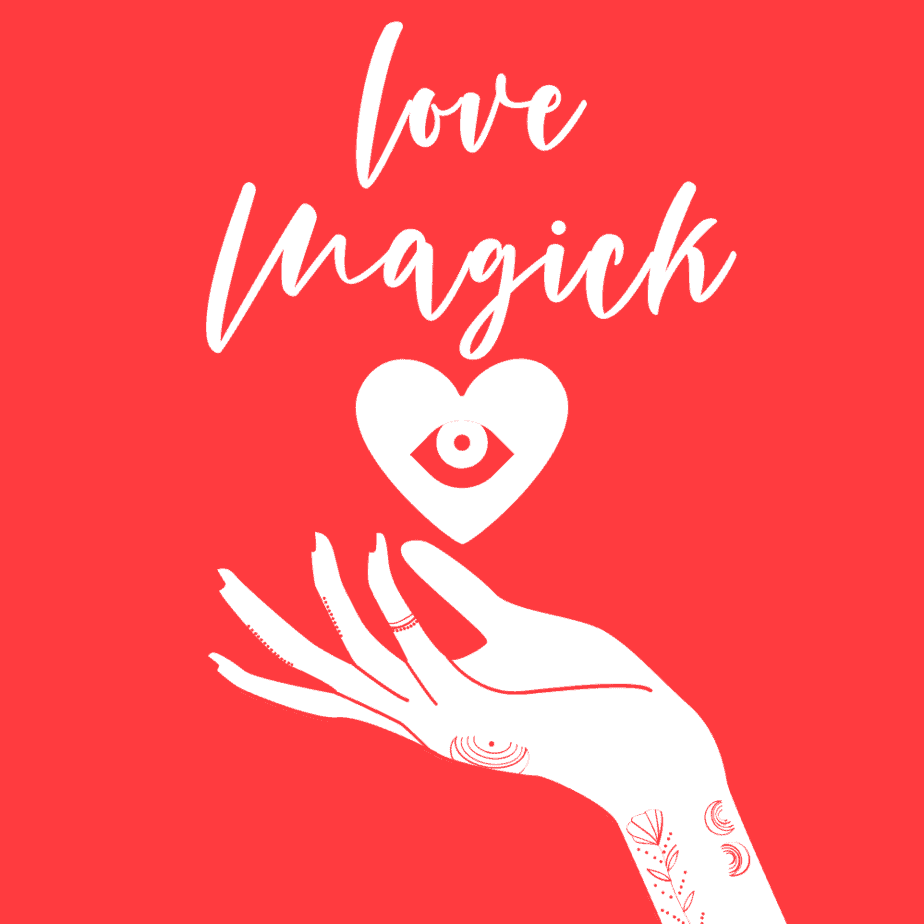
Find the perfect magic spell for your every romantic need. From first meeting a lover to breaking up or getting married, the perfect spell is in this book!
We earn a commission if you click this link and make a purchase at no additional cost to you.
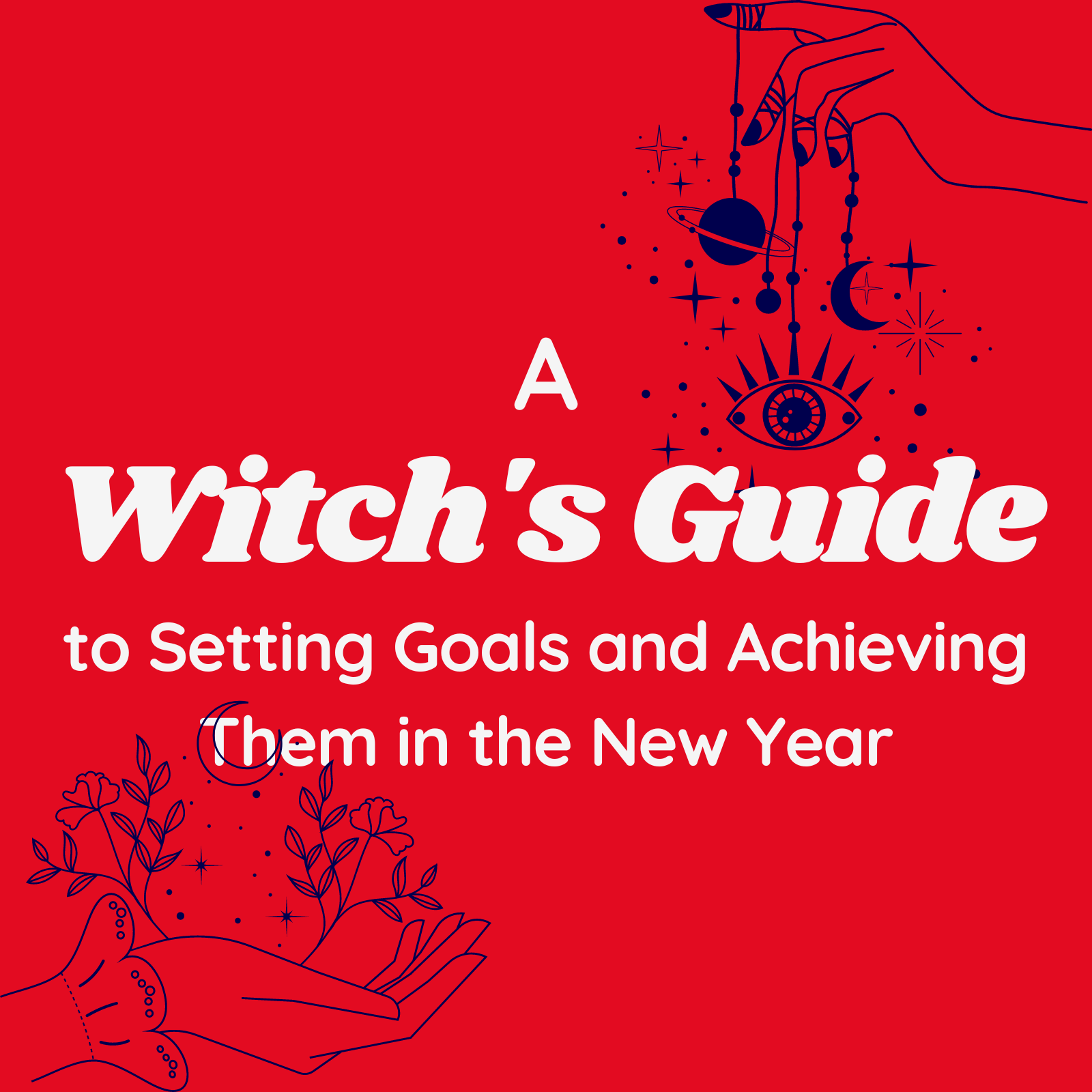
The New Year is a great time to start fresh, and what better way to do that than with some magical help? This witchy book will show you how to properly plan your new year's goals and when to cast them, using lunar phases, planetary hours, planetary days, and monthly correspondences.
This intermediate level guide includes:

Are you ready to unleash the power of simmer pot spells in your life? In this guide, you'll learn everything you need to know about using these potent potions for wealth, abundance and success. From different recipes to ways of making them more powerful, this ebook will show you how to use simmer pots to create the life of your dreams. So what are you waiting for? Pick up a copy now and let the magic begin!
The different styles of simmer pots I will cover in this ebook are:
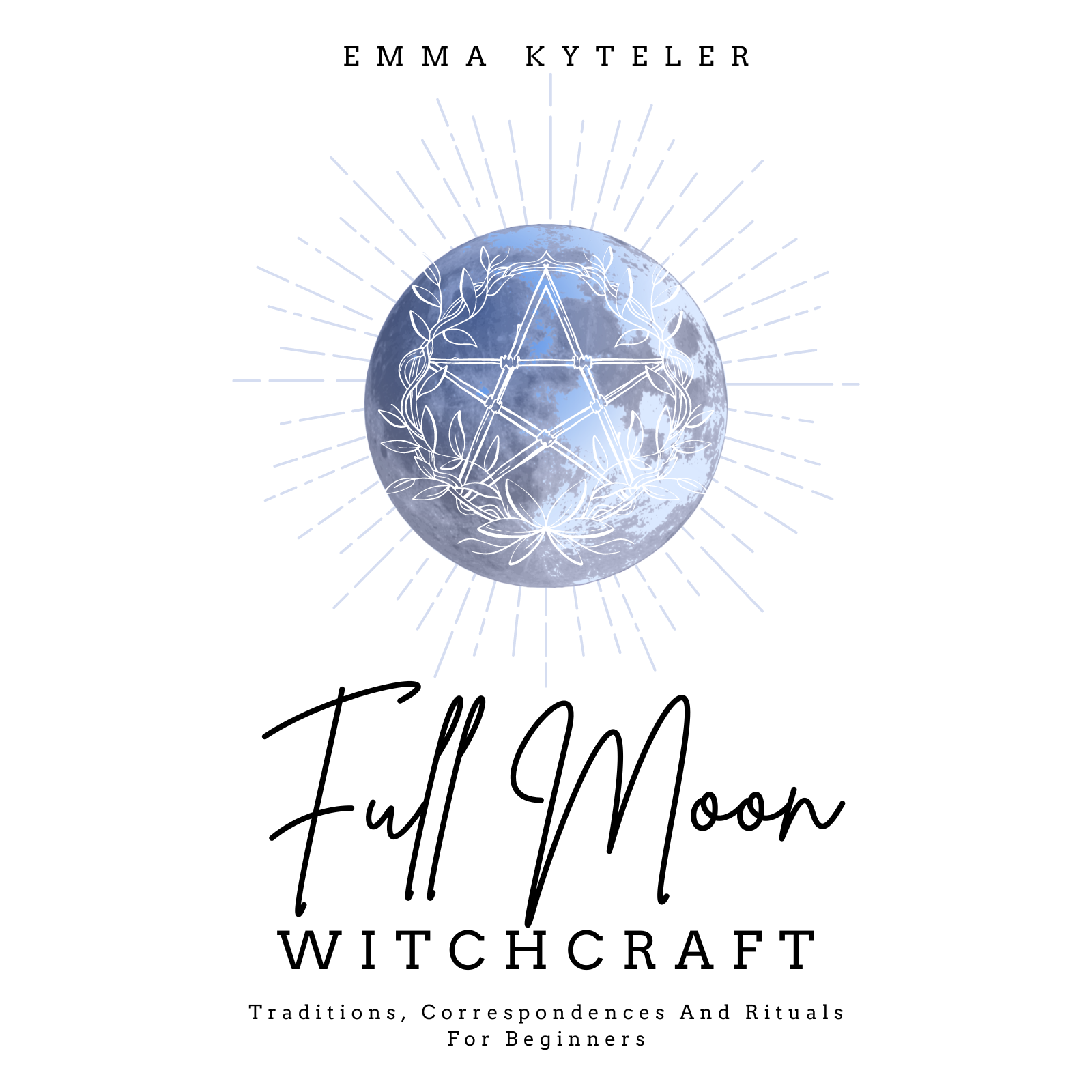
Take your moon magic to the next level with Full Moon Witchcraft. In this book, you'll learn how to work with the powerful energy of the full moon to create positive change in your life. From choosing the right moon phase for your spellwork to understanding how the full moon influences you based on your natal moon sign, you'll be equipped with all the information you need to work successfully with this potent lunar force.
You'll also find tips and tricks for working with full moon energy for love, money, healing, and even hexes and curses. So whether you're a novice witch looking to take your first steps into magical practice or an experienced practitioner looking to deepen your understanding of this vital component of witchcraft, Full Moon Witchcraft has everything you need!
We earn a commission if you click this link and make a purchase at no additional cost to you.
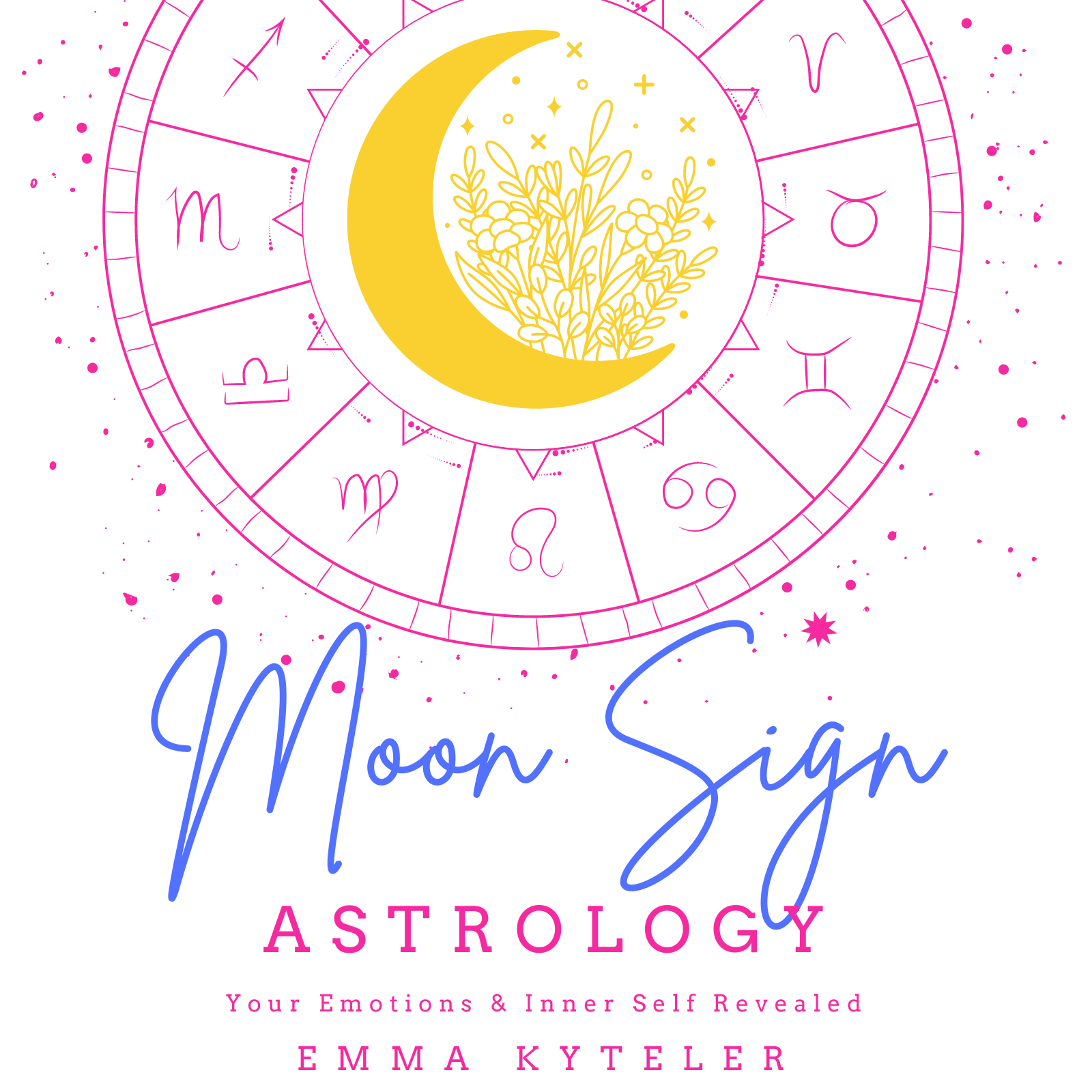
Learn the deepest secrets of your moon sign in this comprehensive guide!
By understanding your moon sign, you can get a much deeper insight into yourself – both on an emotional level and in terms of your true inner desires. With this knowledge at hand, you'll be able to make more informed choices about all areas of life that impact you, from relationships to career paths.
In this guide, we'll cover everything you need to know about moon sign astrology – from the basics of each sign to how it affects your moods and emotions. We'll also explore what your unique moon sign means for your spiritual journey and witchcraft, and how you can use this information to create the life you've always wanted.
So whether you're just getting started with learning about astrology or you're a seasoned pro, this guide will give you the insights you need to understand your moon sign like never before.
We earn a commission if you click this link and make a purchase at no additional cost to you.

Indulge in the enchanting power of the full moon with "The Magic of Full Moon Tea: Recipes And Rituals" - the ultimate guide to brewing delicious and spiritually nourishing herbal teas.
This book will lead you on an unforgettable journey of full moon energy, teaching you how to select the right ingredients, master the art of tea-making, and create your very own personalized blends.
Immerse yourself in the magic of full moon tea ceremonies and discover how to incorporate them into your spiritual practice. Whether you're a tea lover or a seeker of spiritual growth, "The Magic of Full Moon Tea" is the perfect companion to help you unlock the secrets of the universe, one sip at a time.
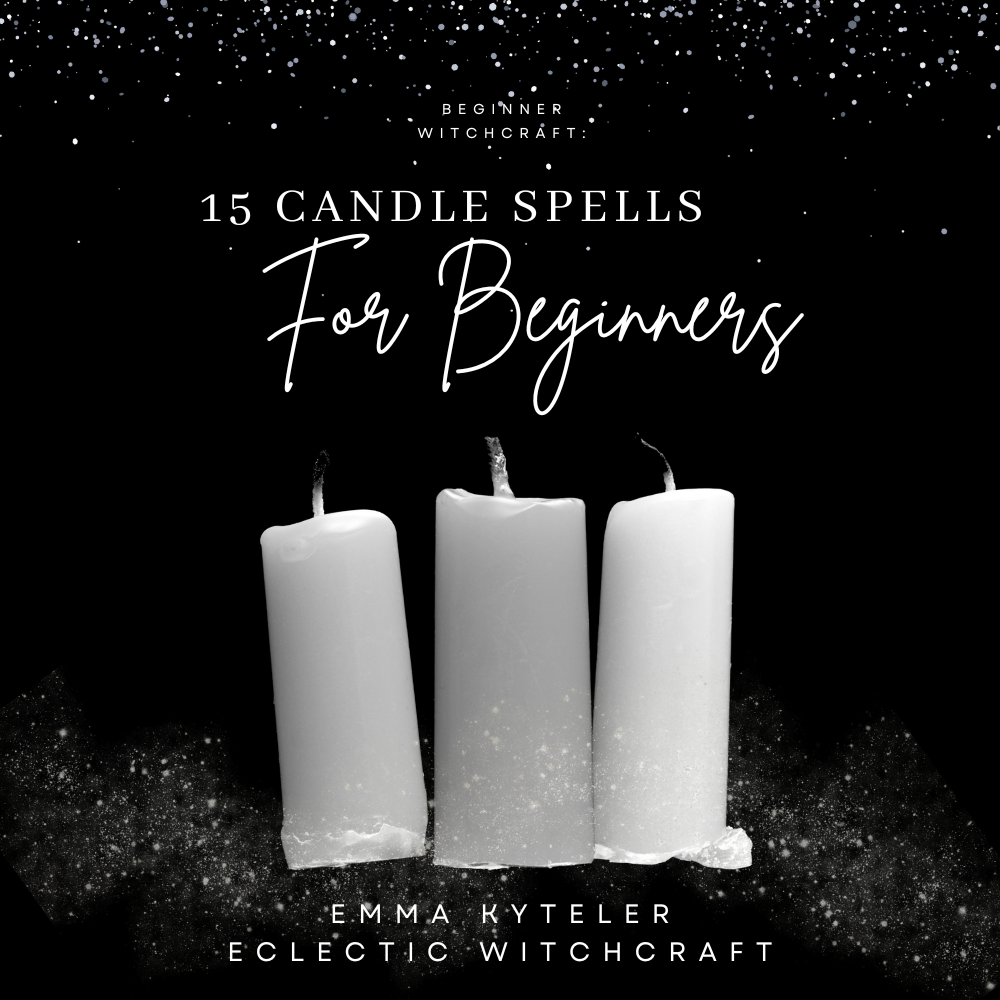
Discover the enchanting world of candle magic with "Beginner Witchcraft: 15 Candle Spells for Beginners," your ultimate guide to harnessing the power of fire, intention, and energy through the use of candles. In this comprehensive book, you'll learn the art of candle magick, an ancient practice rooted in the elemental power of fire and the symbolic meanings of colors. Whether you're new to witchcraft or an experienced practitioner looking to expand your knowledge, this guide has everything you need to embark on your magical journey with confidence.
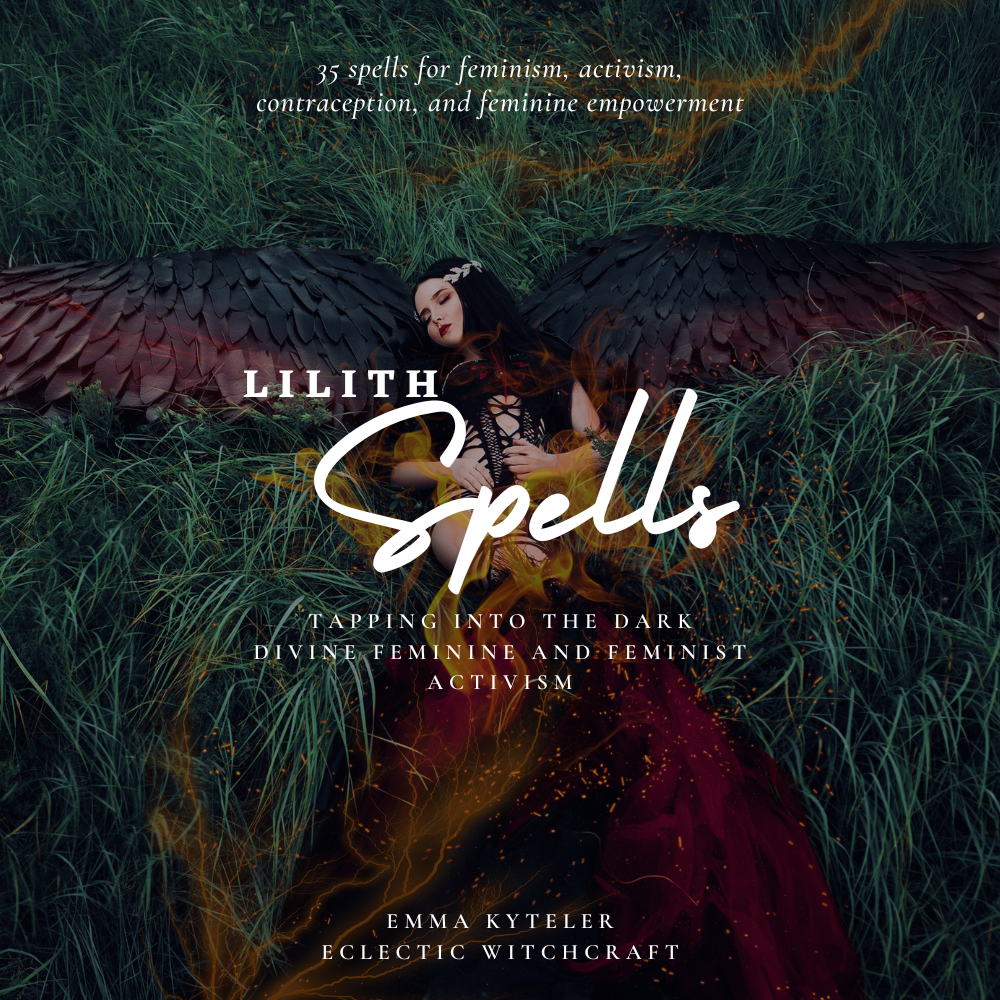
Delve into the mystical world of "Lilith Spells: Tapping Into The Dark Divine Feminine And Feminist Activism," a powerful grimoire that will guide you on a transformative journey through the realms of Lilith, the first wife of Adam, feminist icon, and demon goddess. Unearth the secrets of this enigmatic figure, who embodies the essence of feminine power, independence, and rebellion against patriarchal oppression. Includes 35 unique spells.

This comprehensive book delves into the dual energies of Aphrodite, empowering you to manifest your desires in matters of the heart and personal conflicts. Explore the depths of love and war magic as you learn advanced techniques such as sigil creation, candle magic, and divination to deepen your connection with Aphrodite and gain insight into romantic situations. Discover a diverse collection of spells that range from attraction and deepening connections to conflict resolution and protection. Embrace the dark aspects of love while honoring the nurturing and healing energies of Aphrodite, and learn to wield baneful magic with respect and caution. With its reader-friendly layout and comprehensive features, "Aphrodite of Love and War: A Spell Book for Romantic Warfare" is your ultimate companion on a transformative journey of self-discovery and empowerment.
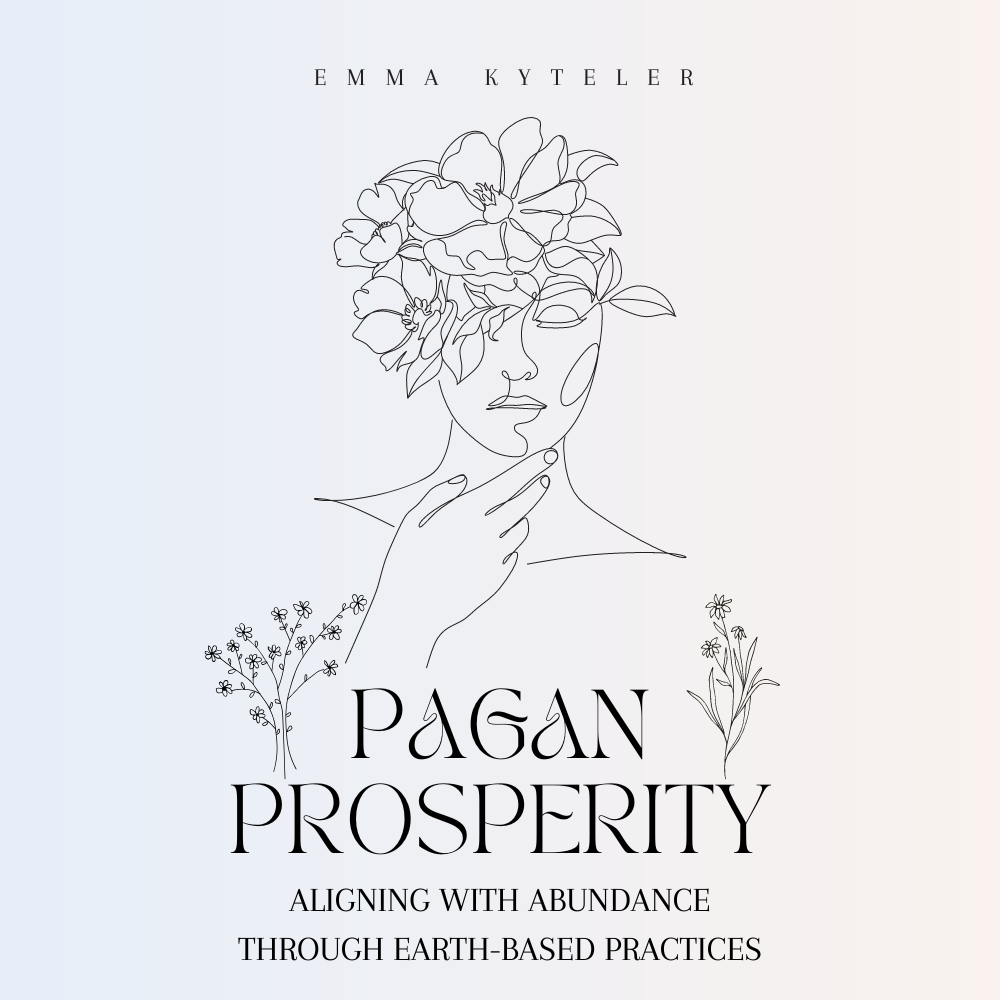
Unearth Your Wealth: Harness the Power of Saturn and the Earth Element for Abundant Prosperity
Have you ever wondered if the stars and the elements could unlock your true financial potential? If you're ready to embark on a transformative journey, our book "Unearth Your Wealth: Harness the Power of Saturn and the Earth Element for Abundant Prosperity" is the mystical guide you've been waiting for!
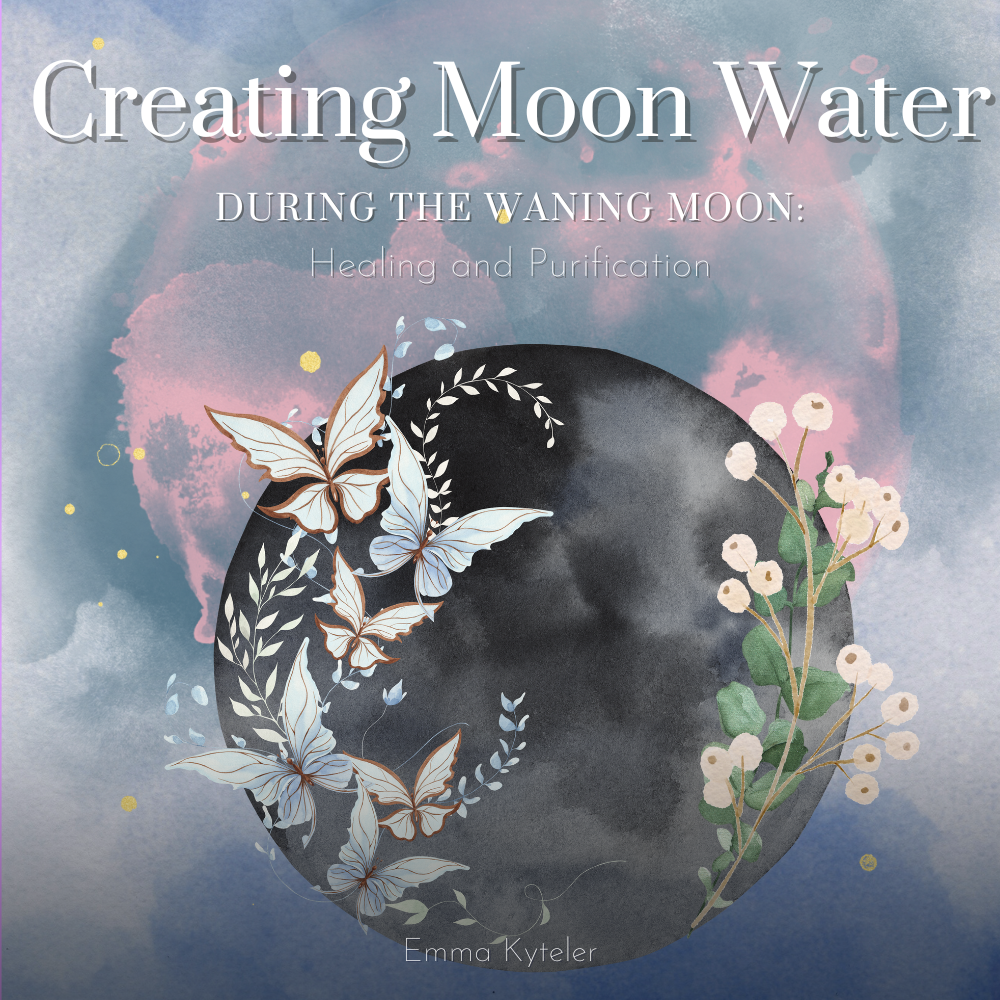
Unveil the power of the celestial bodies and explore a side of witchcraft often misunderstood and underused. "Creating Moon Water During the Waning Moon: Healing and Purification" is an all-inclusive guide that will transform your magical practice and daily life.
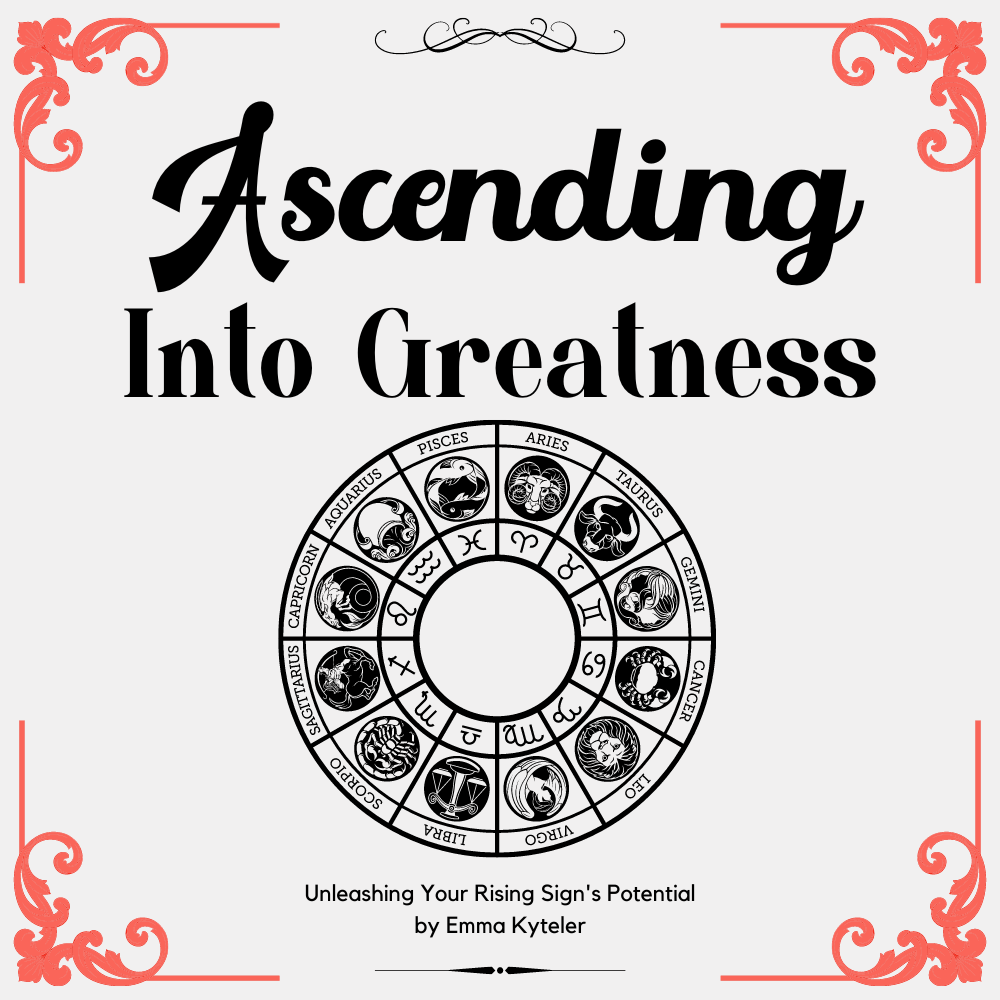
Dive into the pages of "Rising Signs Unveiled: Your Astrological Mask and Its Power" to decode the mystery that is YOU! This comprehensive guide uncovers the hidden depths of the twelve Rising Signs, from the trailblazing Aries to the dreamy Pisces, and everyone in between.

Are you called to the mystic arts of the sea? Do you feel a deep connection to water and long to learn from the endless wisdom of the oceans? Then this comprehensive guide to sea witchcraft is for you.

